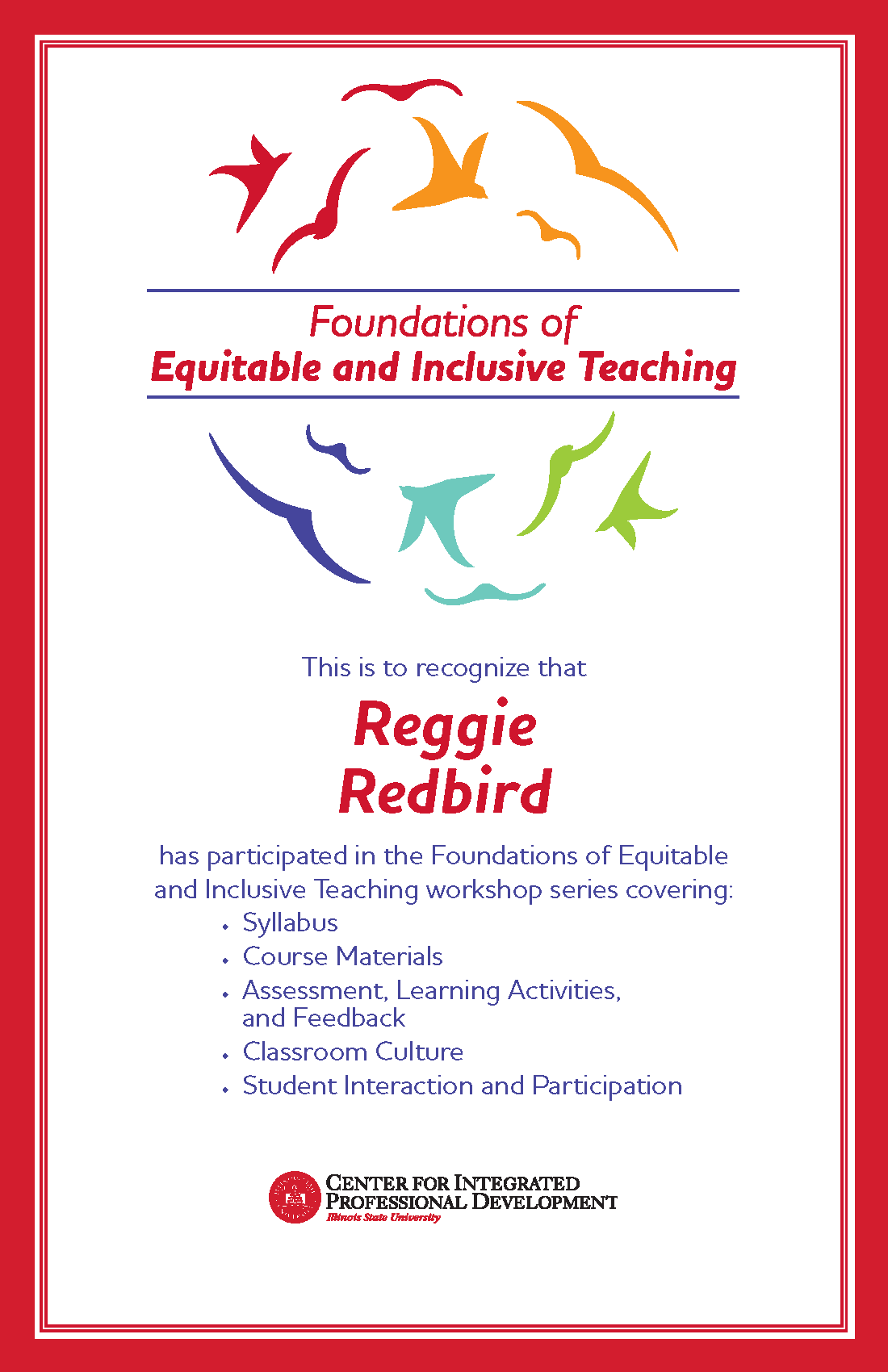
Foundations of Equitable and Inclusive Teaching
In this series, you will learn to tweak or overhaul your course design by intentionally reflecting on your teaching practice with student diversity in mind. Each aspect of course design, from your assessment methods to selection of instructional materials, to classroom climate, may privilege some students while disadvantaging others or even harming them. Our goal is to minimize the harm to the students and maximize student learning and belongingness. Participants who complete all 5 sessions receive a certificate of recognition. We do not offer the series as open-enrollment workshops now, but we can offer a workshop or a series by request by the departments or the group of instructors. Participants who complete all sessions receive a certificate of recognition.

Syllabus
Developing an equitable and inclusive syllabus is the first step for equitable and inclusive teaching. A syllabus is not a simple contract or information for your students. What is included or not included sends implicit and explicit messages to students about your value and commitment to equity, inclusion, and diversity.
Classroom Culture
Classroom climate plays an important role in student learning, success, and a sense of belonging. Classroom culture and climates can be optimized by reflecting on your teaching practices, bias, and positionality and making intentional changes. In this session, you will learn how teachers’ behavior and beliefs affect student success and learning. You will also develop a concrete plan to make adjustments to your own teaching behaviors.
Course Materials
Reviewing course materials to include authors, perspectives, and readings from diverse backgrounds is the first step for inclusive teaching, but it's not sufficient and may have negative effects on students’ feelings of belongingness. This session will help you move beyond the additive approach and make transformative changes to your instructional materials.
Student Interaction and Participation
Although instructor’s behaviors make a big difference in classroom climate and culture, students can also contribute to positive or negative classroom culture. You can strive to create equitable student interaction by creating a community where students can trust, respect, and value each other’s perspectives.
Assessment, Learning Activities, and Feedback
All students can succeed with intentionally designed assessments, learning activities, and feedback. Assessment and learning activities are the core of teaching and if they are not equitable, we are not providing equitable learning opportunities for the students. We need to provide students with opportunities to reflect on their progress and the support they need to succeed. During this session, you will examine your current assessment strategies to see how they impact the learning of students from diverse backgrounds. You will also learn how to adjust your assessment strategies and learning activities to make them more equitable and transparent from a student success perspective.
These workshops fall under the AAC&U High-Impact Educational Practice of Diversity/Global Learning.